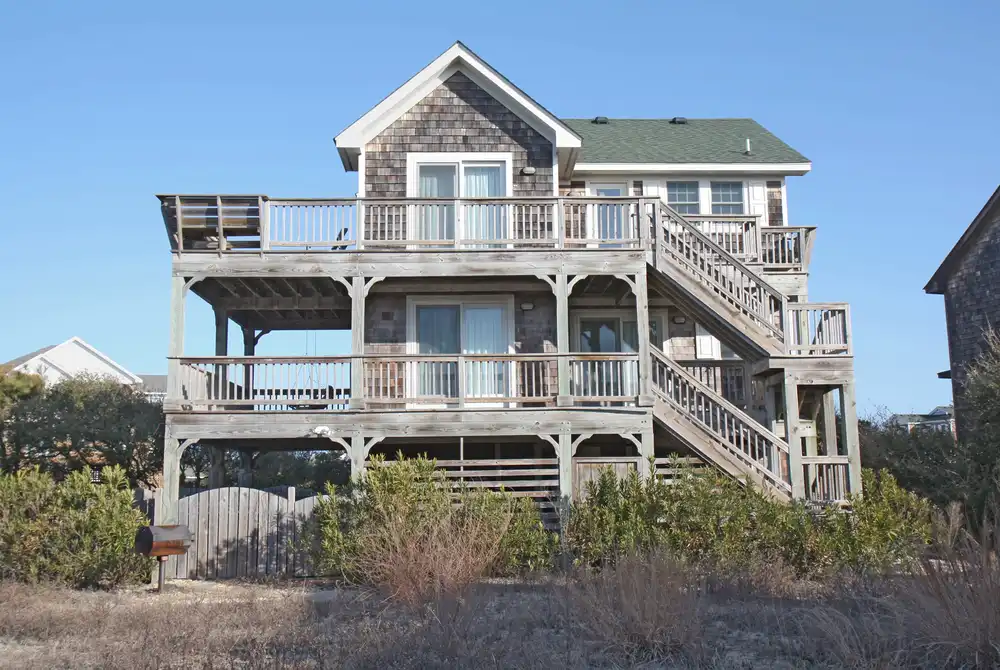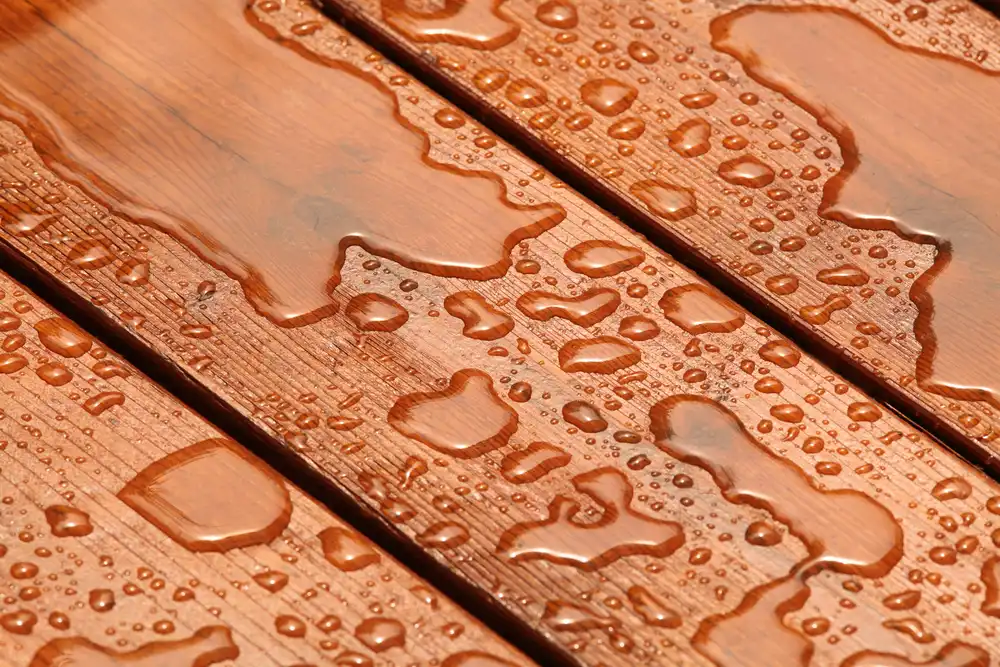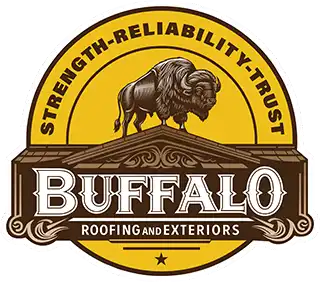When you live along the Texas Gulf Coast—especially in Corpus Christi and surrounding coastal areas—you enjoy a lifestyle that’s centered around the outdoors. Whether it’s grilling with friends, watching the sunset over the water, or just relaxing outside with your morning coffee, a well-built deck can turn your backyard into a true extension of your living space.
But living near the coast comes with unique challenges. Intense sun, high humidity, salt-laden air, and hurricane-force winds can all take a toll on outdoor structures. That’s why building a deck that can handle coastal weather isn’t just about aesthetics—it’s about smart, durable construction that stands the test of time.
At Buffalo Roofing & Exteriors, we understand the Gulf Coast climate and build decks designed to thrive in it. Here’s what every coastal homeowner should know before adding or upgrading a deck.

Understanding the Coastal Climate
Corpus Christi sees more than 220 sunny days a year—and it’s no secret that salt, wind, and moisture are hard on building materials. The key threats to decks in this environment include:
- Salt Air: Salt is corrosive to metal fasteners and can accelerate the aging of untreated wood.
- UV Exposure: Constant sun exposure can dry out wood, bleach surfaces, and cause cracking or splintering.
- Humidity & Rain: Moisture encourages mold, mildew, and rot—especially in shaded or poorly ventilated areas.
- High Winds & Storms: Hurricanes and tropical storms can rip up unsecured structures or weaken poorly built decks over time.
Because of these factors, coastal deck construction must go beyond basic code compliance. It requires specialized materials, skilled installation, and thoughtful design.
Choosing the Right Materials
Your deck’s ability to handle coastal weather starts with material selection. Some decking materials simply aren’t built to last near the ocean—so it’s important to choose wisely.
Composite Decking
Composite decking, made from a blend of recycled plastic and wood fibers, is a top choice for coastal homes. Brands like Trex®, TimberTech®, and Fiberon® offer high durability, low maintenance, and excellent resistance to moisture, UV, and salt exposure. Unlike wood, composites won’t rot, warp, or splinter, and they require no staining or sealing.
Pressure-Treated Wood
While more affordable upfront, pressure-treated wood requires consistent maintenance in coastal areas. If you choose this route, make sure it’s rated for ground contact and treated to resist fungal decay and termites. Regular sealing is essential to protect against moisture and UV damage.
Tropical Hardwoods
Woods like Ipe, Cumaru, and Mahogany are naturally dense, rot-resistant, and beautiful—but also more expensive. They hold up well in humid climates but still require oiling to maintain color and longevity. Their high density also makes them more difficult to work with during construction.
Stainless Steel or Galvanized Fasteners
No matter what decking surface you choose, always use corrosion-resistant fasteners. Stainless steel screws, hidden fasteners, and galvanized brackets ensure that salt air doesn’t compromise the deck’s structural integrity over time.
Structural Design Considerations
It’s not just the materials that matter—how your deck is built will determine how well it performs through storm seasons and years of coastal exposure.
Elevated & Properly Drained
In flood-prone or low-lying coastal areas, decks should be built above grade with proper drainage underneath. This prevents water from pooling around posts and helps reduce wood rot and pest issues.
Strong Footings and Secure Anchoring
Decks near the coast need extra-stable foundations. Deep concrete footings, proper post spacing, and hurricane-rated anchoring systems help your deck stay firmly attached—even in high winds. Skimping here can lead to serious safety risks during a storm.
Proper Ventilation
Good airflow is essential to prevent mold and moisture buildup, especially in humid climates. Leave enough clearance beneath the deck and avoid enclosing it too tightly. This allows for faster drying after rain or storms.
Railing and Wind Barriers
If your home is in an open area with high wind exposure, consider reinforced railing systems and partial privacy walls or windbreaks. These features not only provide safety and comfort but can help reduce structural stress during storms.
Maintenance Tips for Coastal Decks
Even the best-built deck will need some level of upkeep—especially in a salty, sunny environment. But with the right care, your deck can stay beautiful and functional for decades.
- Rinse Regularly: Hosing off your deck with fresh water helps remove salt, sand, and debris that can cause damage over time.
- Clean Annually: Use a mild cleaner or composite deck solution to remove mildew, stains, and buildup.
- Seal Wood Surfaces: If you have a wood deck, plan to reseal it every 1–2 years to protect against moisture and UV rays.
- Inspect After Storms: After heavy weather, check for loose boards, rusted fasteners, and any signs of shifting or damage.
- Trim Nearby Plants: Keeping bushes and trees trimmed back improves airflow and reduces moisture buildup around your deck.

Why Work With a Local Coastal Contractor?
At Buffalo Roofing & Exteriors, we’ve worked with hundreds of homeowners across Corpus Christi, Port Aransas, Rockport, and other Gulf Coast communities. We don’t just build decks—we build resilient outdoor spaces designed for life on the coast.
When you work with a contractor who understands local wind codes, salt exposure, and floodplain challenges, you get a deck that’s built to last—not just look good. Our team uses high-quality materials, proper engineering, and thoughtful design to create decks that hold up season after season.
Build a Deck That Lasts—Let’s Talk
If you’re ready to add or upgrade a deck on your coastal home, start with a team that knows the climate, the codes, and the craftsmanship required. At Buffalo Roofing & Exteriors, we offer custom deck design and construction tailored for life in South Texas.
Contact us today to schedule a free consultation and start designing a deck that’s built to withstand the Gulf Coast elements—and built for the way you live.
